[Year in Review 2019] Make in India: These 15 Indian brands are taking the world by storm
Not swayed by the winds of globalisation, many Indian brands are giving a tough fight to their foreign counterparts even today.

India is a country with a rich heritage. Famous for its diversity, the country exports textiles, steel, agriculture produce, organic chemicals, gems and jewellery, etc., to other parts of the world.
But today, most Indians believe overseas brands offer better value than their Indian counterparts.
From Kirloskars and Hero Cycles to Killer jeans and Medimix, these Indian brands are showing that they are at par with many foreign brands.
As we approach the end of 2019, SMBStory lists top 15 Indian brands that are contributing to the growing $2.30 trillion economy.
Kirloskars Brothers Ltd

Sanjay Kirloskar, Chairman and MD, Kirloskar Brothers
In 1888, Laxmanrao Kirloskar started selling bicycles and windmills with his brothers in Belgaum, which is in present day Karnataka. As someone who was passionate about machines, Laxmanrao wanted to build something of his own.
In 1901, he introduced his first product - the chaff cutter. Later, Kirloskar Brothers, which was the genesis of the $2.1 billion Kirloskar Group, launched its second product - the iron plough, in 1903. The prevalent belief then was that the use of an iron plough would poison the soil in the fields. Laxmanrao, nonetheless, persisted and found supporters to sell his plough. And as they say, there was no looking back.
On January 15, 1920, the organisation was officially registered as a legal entity as Kirloskar Brothers Limited (KBL). Today, the more than 100-year-old organisation is one of the most admired engineering firms in India and the across world.
Synonymous with pumps, KBL is a global leader in fluid pumping technology. It has 18 manufacturing facilities supplying to more than 165 countries spanning across more than eight sectors including power, oil and gas industry, building and construction, irrigation, marine and defence, and retail pumps. It has an 80 percent market share in the UK’s water companies, and is also Britain’s largest pump manufacturer through its subsidiary, SPP Pumps.
“The aim was to ensure India could rely on an Indian-owned company for all its requirements,” says Rama Kirloskar, daughter of Sanjay Kirloskar, who is the MD of Kirloskar Ebara Pumps Limited, a joint-venture between Ebara Corporation, Japan, and KBL.
Syska

Rajesh Uttamchandani, Director, Syska Group
For a company that has now become synonymous with electrical fittings, it might be surprising to learn that Syska, which was started as Shree Sant Kripa Appliances Pvt. Ltd (SSK Group) in 1989, was into the distribution of T-Series audio cassettes, CDs, and audio video systems.
Started by brothers Rajesh and Govind Uttamchandani, the Syska Group today is a Rs 1,200+ crore company, of which 70 percent comes from Syska LED, 20 percent comes Syska accessories, and the remaining 10 percent comes from other segments.
Talking to SMBStory, Rajesh Uttamchandani, Director of Syska Group, says, today the group has grown into a domestic leader and diversified into Syska LED, Syska personal care, Syska mobile accessories, and Syska Wires. Rajesh says, they plan to go public in the next two to three years.
Syska LED has established a pan-India presence through its vast distributor network. The group now has a presence across two lakh retailers in the country, offering customers advanced solutions of LED lighting ranging from residential, commercial outdoor, and industrial and decorative.
Inc 5

Almas Nanda, Founder, Inc.5 and Amin Virji, Managing Director, Inc.5
All women love shoes, but finding the sweet spot between style and comfort is often a tall order. Almas Nanda also found this to be troubling and wanted to have both - plenty of style with oodles of comfort. In 1998, when she was just 24-years-old, she started Inc.5 to provide women with stylish footwear that did not compromise on comfort.
Almas’ brother Amin Virji, MD, Inc.5, recalls how they started from one store in Heera Panna Shopping Center in Mumbai and took the brand’s presence to 54 exclusive stores across India. He says, “Our grandfather launched ‘Regal Shoes’ in 1954. It was a family-run business, but we were limited to manufacturing basic and formal footwear. In 1998, we thought of exploring the opportunity in the untapped footwear market that provides good-looking footwear with comfort. Hence Inc.5 was launched.”
Regal Shoes, Inc.5’s parent company, was managed and grown exponentially by Amin’s father Abdul Rasool Virji and uncle Jalal Virji. In 2001, Regal Shoes and Inc.5 were merged to form Inc.5 Shoes Private Limited. With a strong presence in Tier I and Tier II cities, including Delhi, Kolkata, Chennai, Bengaluru, Hyderabad, Ahmedabad, Kanpur, Lucknow, and Pune, today Inc.5 is recording an annual turnover of Rs 163 crore. The company currently exports its footwear to Sri Lanka.
High spirit

Tushar Jain, Co-founder, High Spirit
In 1992, infamous stockbroker Harshad Mehta was charged with stock manipulation to the tune of almost Rs 5,000 crore. The scam left in its wake financial devastation for hundreds of investors. One among them was Jharkhand-based businessman Mulchand Jain, who lost all his money and needed to start afresh.
With the help of his teenage son Tushar Jain, the duo started selling bags on the streets of Mumbai. In what can only be described as an amazing ‘bags to riches’ story, Tushar and his father completely transformed the business into a baggage behemoth.
Under Tushar’s leadership, the business was formally launched as High Spirit Commercial Ventures in 2012. Its meteoric rise saw it become India’s fourth-largest maker and seller of backpacks and luggage. The Rs 250-crore Mumbai-headquartered company now has 10 regional offices across India.
Monte Carlo
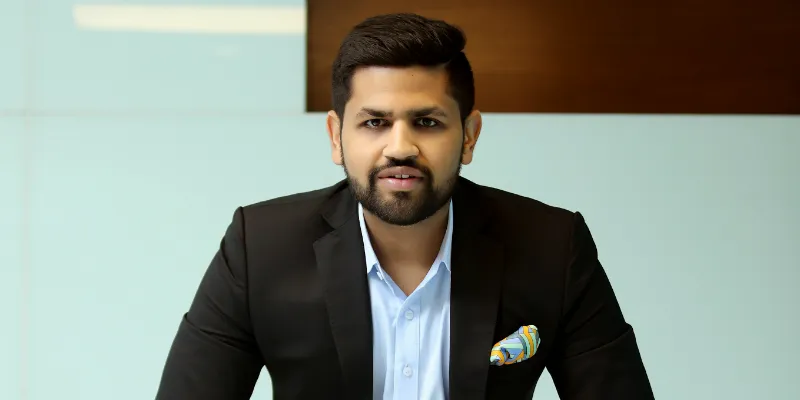
Rishabh Oswal, Executive Director, Monte Carlo
If you live in the North or East of India, a person wearing a Monte Carlo jacket, sweater, or cardigan is a common sight. But today, the brand’s winterwear is sold across India.
But Monte Carlo, which is regarded as India’s first organised fashion apparel brand, started with Oswal Woolen Mills in Ludhiana, which was set up post-Independence in 1949.
The mill started bringing the wool industry stakeholders together to form a more organised approach of manufacturing and selling. It eventually became one of the largest producers of woolen yarns in India. In 1984, Monte Carlo was launched as a brand under Oswal Woolen Mills.
In just one year, the brand recorded a turnover of Rs 2.5 crore. Several years later, in 2002, Monte Carlo slowly became the all-season brand. Last year, Monte Carlo recorded a turnover of Rs 580 crore, registering a growth of around 11 percent in revenue compared to the previous year.
With over 2,500 multi-brand outlets, 600 large format stores including Reliance Trends, Pantaloons, Central, Shoppers Stop, Lifestyle, and more, Monte Carlo now thrives on its strong retail presence.
Hero cycles
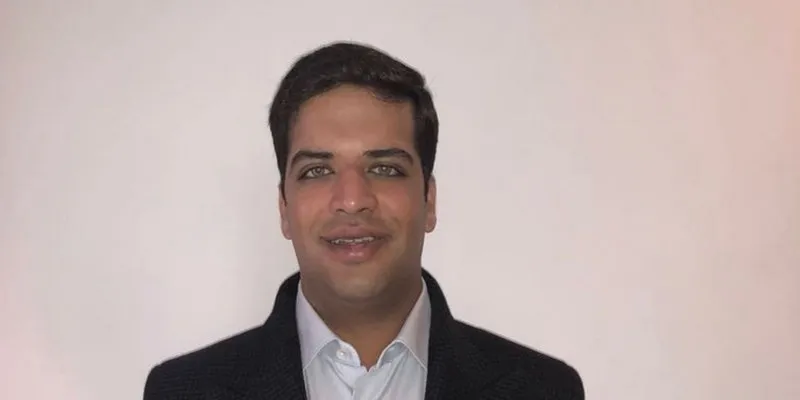
Abhishek Munjal, Director, Hero Cycles
Childhood stands for complete freedom and the bicycle symbolises this best. For millions of Indian kids, getting their first bicycle has been a huge moment.
Bringing these locally-manufactured cycles into the lives of countless such Indian families was late OP Munjal, Founder of Hero Cycles.
Established in 1956 in Ludhiana, Hero Cycles was set up in post-Independence India. It was the time when the nation was discovering its freedom and was on the move. And Munjal and Hero Cycles came in at the right time. Although the business started small, under Munjal’s leadership, it went on to become the largest single bicycle maker in the world.
It now manufactures over five million cycles per year. Its primary production unit in Ludhiana is fully equipped with an in-house R&D facility producing major bicycle components. The company also exports to over 70 countries including Germany, Poland, Africa, and Finland.
Part of the larger Hero Motors Company (HMC), the Rs 3,500 crore-plus company is a family business and is headed by Pankaj M Munjal, Chairman, HMC. His son Abhishek Munjal (27), Director, Hero Cycles, is now involved in the company’s operations, vision and strategy, and runs things on the ground.
Medimix

Pradeep Cholayil, Managing Director, Medimix
Long before organic soaps flooded the market, synthetic skin cleansers held a supreme place in the Indian consumer household. Many personal care brands persuaded customers with their advertisements, putting forward chemical-based products.
However, the birth of Medimix dates back to 50 years ago when the Cholayil family used viprathi oil as a cure for skin problems. The year 1969 proved pivotal to the family legacy as Late VP Sidhan combined a timeless tradition with his sharp business acumen to develop a green bar soap.
Medimix saw the light of the day in Sidhan’s kitchen, who worked as an allopathic doctor for the Indian Railways. He would treat sanitation workers who suffered from multiple skin problems. Coming from a lineage of skilled Ayurvedic practitioners, Sidhan decided to find a solution in Ayurveda for these problems and invented a concoction of 18 herbs and natural oils, and Medimix was produced.
Today, Medimix has become one of the leading Ayurvedic brands in the personal care space, growing on the back of quality products, without raising any investment.
The brand offers personal care products such as soap, face wash, body wash, moisturiser, shampoo, and hygiene wash, and has recorded an annual turnover of over Rs 200 crore, and is looking at expanding the range into new categories.
NV Group
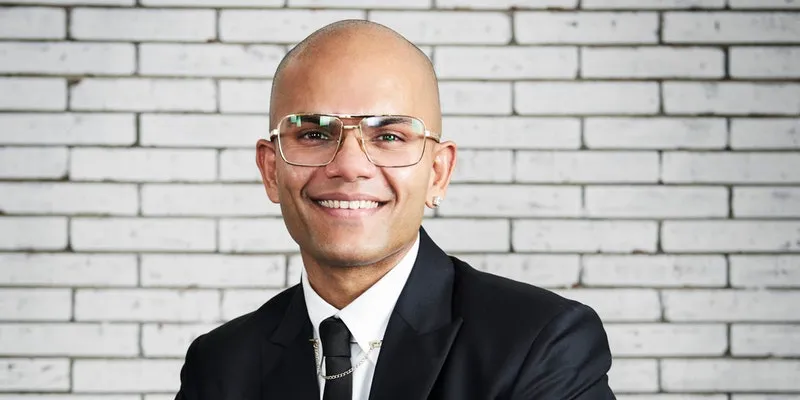
Varun Jain, Director, Marketing and BD, NV Group
In the early 1990s, Ashok Jain was a liquor salesman in a small wine shop in Haryana. But his vision was to be a retailer of alcoholic beverages.
Following his dreams, Ashok and his friend saved up enough money to buy the same shop he worked in. As the demand for alcoholic beverages rose, their sales also grew, and they bought more stores. Later, Ashok also became a partner at Gurgaon Liquor Syndicate.
Over time, Ashok became a wholesaler of alcoholic beverages, then a bottler, and then a distiller. By 1996, Ashok was at the helm of his own liquor business - NV Group.
Today, 23 years down the line, NV Group claims to have registered a turnover of Rs 1,360 crore for the last financial year, and sales of approximately Rs 120 crore per month. It has around 500 employees on payroll.
NV Group makes its own whiskey under the brands Party Special, Royal Envy, and Discovery. Its range of vodka and gin include Blue Moon, and rum brand called Crazy Romeo. It also produces liquor for Pernod Ricard, Bacardi Martini, and Diageo. It has four distilleries (two in Haryana and one each in Punjab and Maharashtra), a bottling plant in Goa and Chandigarh.
Killer jeans
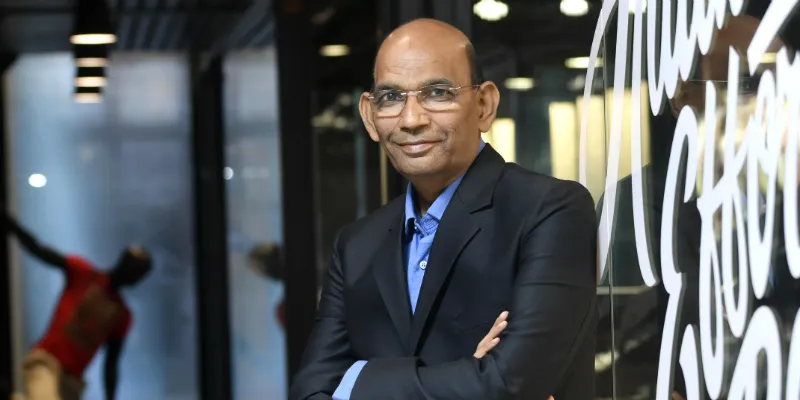
Kewalchand Jain, Chairman and MD, KKCL
Good jeans are a staple of every wardrobe. They can easily last more than two to three years, and so people are ready to pay a premium price for a good pair of jeans.
Back in 1989, Mumbai-based businessman Kewalchand Jain decided to take a gamble on this kind of logic. At that time, he was running his family’s garment business and wanted to start making jeans. Kewalchand wanted to build an Indian denim brand and make Indians proud.
This was the inspiration behind Killer Jeans. Selecting the name to represent the rebellious nature of youth, Kewalchand launched the brand despite anticipating heavy competition from international brands like Levis, Pepe Jeans, and Wrangler. Spykar was another Indian denim brand that launched around the same time.
With a strong belief that brands should never sell its products on discount, Killer Jeans has been a full-price brand. “We didn’t want to dilute our brand position by giving discounts. Thus, we priced our products at reasonable prices and sold them at full price, rather than overpricing them and offering major discounts,” he says.
He maintains that selling at full price ensures brand loyalty and higher profits. In 1992, he started Kewal Kiran Clothing Ltd (KKCL) - an institution that would be the parent company for Killer Jeans.
Over the years, KKCL has launched clothing brands like Easies, Integriti, LawmanPg3 and also acquired Desi Belle, the womens’ wear brand. It raked in Rs 456 crore turnover last year, with Killer Jeans accounting for 53 percent of this amount (roughly Rs 242 crore). It also raised Rs 80 crore through an IPO in 2006.
Kewalchand says, “We have been growing our revenues at 14 percent in the last 10 years. We will continue to compete and expect 20 percent CAGR in the next five years.”
Spykar
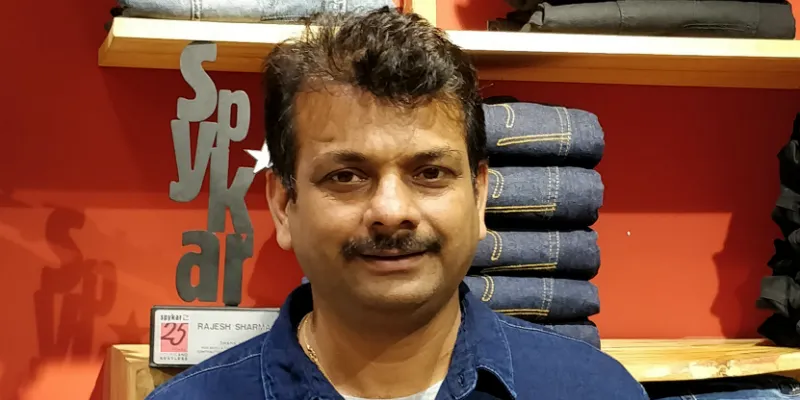
Sanjay Vakharia, CEO, Spykar Lifestyle
Among Indian denim brands, Spykar Lifestyle has been one of the largest and fastest-growing brands. Launched in 1992 by Prasad Pabrekar, the Mumbai-based brand started small. But over the years, it was shaped into becoming one of the larger players, thanks to Sanjay Vakharia, CEO, Spykar Lifestyle.
Spykar products are currently available pan India across 250 exclusive outlets in more than 1,000 multi-brand outlets, large format stores as well as ecommerce sites. The brand offers casual top-wear, bottom-wear, and accessories like backpacks, flip-flops, perfumes, wallets, deodorants, etc.
“Spykar’s customer sales grew from Rs 460 crore in FY 2016-17 to Rs 550 crore in FY 2017-18,” says Sanjay. This year, the company plans to touch Rs 700 crore and continue growing. Sanjay maintains that Spykar has sustained growth despite being affected by major challenges such as demonetisation and GST.
Wow cosmetics

(L-R) Arvind, Ashwin, Karan, and Mansih
Four years ago, Arvind Sokke, Ashwin Sokke, Manish Chowdhary, and Karan Chowdhary started off with the dream of making it big in the skincare and lifestyle industry. Fast forward to 2019, the brand has become the darling of Amazon. The parent company Fit&Glow is a $50 million (Rs 350 crore) business and its brand, Wow, is a national and global hit.
The company managed to build a business purely via ecommerce with a small offline presence. Amazon India Head Amit Agarwal has gone on the record to say that Wow is a hit among all their sellers.
But like all great success stories, Wow too started small with heaps of challenges along the way. The journey began with the friends almost going bankrupt. Their retail business in the laptops and electronics space piled up a loss of $1 million due to unsold inventory and the rise of deep discounts by ecommerce businesses in 2012.
But the obstacle became the way when the founders turned their misfortune on its head and decided to embrace ecommerce. The rest, as they say, is history.
Kimirica

Rajat Jain and Mohit Jain, Founders, Kimirica
The tiny soaps and shower gels found in most high-end hotels these days are most likely manufactured by Indore-based startup Kimirica Hunter.
But when brothers Rajat Jain (34) and Mohit Jain (31) launched the company in 2013, they were working out of a small, 100 sq. ft room. The duo also had debts to pay and faced a huge cash crunch.
Prior to starting up, Mohit was writing his dissertation on a contemporary herbal skincare brand in India. With Rajat’s background in pharmacy and the family’s Ayurvedic business, the brothers were confident they could manufacture herbal skincare products on their own.
“Initially, everything seemed easy. But after 10 months of research, we realised that launching on retail platforms would require products with varied formulations for specific skin and hair problems,” says Rajat. “While brainstorming, we remembered staying at a hotel. The miniature amenity bottles we had used stuck in our minds, and we got inspired,” Rajat adds.
The brothers started examining the market, and they observed that more than 70 percent of hotel amenity products for international hotel brands were imported. Further, they observed that monotonous and conventional brand offerings were made for all hotels. They realised there was a clear institutional void, and told themselves that they’d fill this gap by custom-making hotel amenity products locally and selling them to hotel chains.
Kimirica Hunter is now worth Rs 300 crore and records a turnover of around Rs 90 crore. It caters to a large number of international hotel chains such as Marriott, Starwood, Hilton, Jumeirah, Hyatt, Sofitel, Pullman, and an array of independent luxury hotels.
In 2017, Kimirica also signed a joint venture with Canadian hospitality product manufacturer Hunter Amenities, from where it gets its complete name ‘Kimirica Hunter.’
Onida
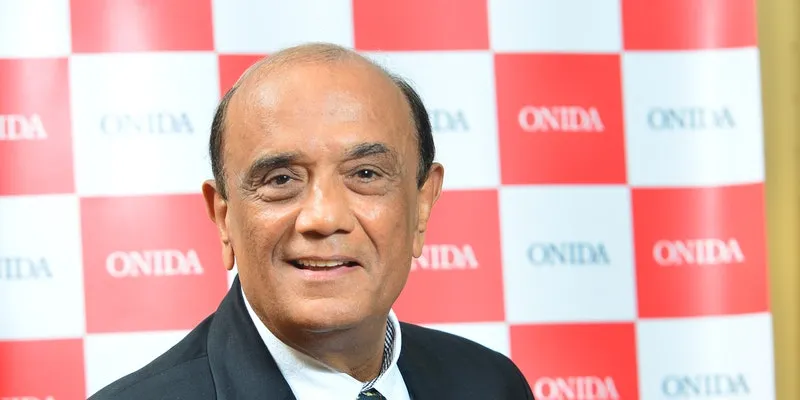
Vijay Mansukhani, Cofounder and MD, Onida
In the 1970s, Vijay Mansukhani was working in the Iranian merchant navy. Starting off his career, he was happy earning approximately six times the salary that Indians in the merchant navy were earning. But when he met his business partner Gulu Mirchandani, his life changed. Vijay decided to jump ship and become an entrepreneur.
Leaving behind a well-paying job was risky. But little did Vijay know that he and his partner would go on to redefine the Indian consumer durables industry with their iconic ‘Onida’ brand of TVs.
“We started the company when the Asian Games happened in Delhi. The late PM Indira Gandhi had just opened the floodgates of opportunities by announcing national telecast and colour television around that time,” says Vijay.
“I gave up my career as a marine engineer and took that leap of faith. That’s how Onida happened," he adds.
In an incredible tale of perseverance, battling adverse economic conditions, and facing stiff competition from foreign companies, Onida emerged triumphant. It became a household name as lakhs of Indians were buying their first TVs and were choosing Onida.
Over the years, Vijay has led Onida to become a Rs 736 crore company. At 69, he is now a stalwart in the Indian consumer durables industry.
Nature’s Essence
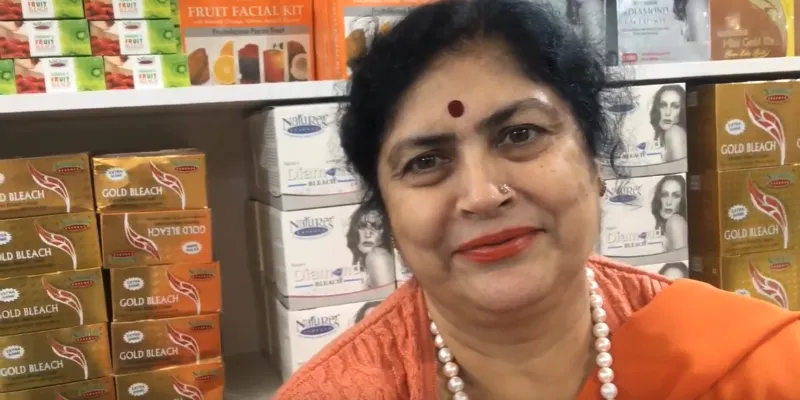
Neelam Nanda, Founder, Nature's Essence
The cosmetic industry is dominated by many global multinational corporations. However, despite the presence of giants like L’Oreal, Procter & Gamble, Unilever, Revlon Inc, etc., it is interesting to see many smaller Indian brands thrive in the Indian market.
Nature’s Essence is one among the scores of local brands competing with the biggies in the market. Started from the dining table of Raj Kumar Nanda and his wife Neelam Nanda 20 years ago, it is going places today. Last year, venture fund Samara Capital invested Rs 200 crore and bought a majority stake in the Delhi-based company.
Recalling the early years when she and her husband started the business, Neelam says she did not know a thing about marketing. However, she started by keeping stalls at exhibitions. She remembers starting out with a stall space of nine meters, “and we then came to a stage where we took 200 sq. meters,” she adds.
Besides continuing to sell through various exhibitions across the country, Nature’s Essence products are sold in over two lakh retail outlets and 40,000 salons through a network of distributors. It manufactures skincare products including facial kits, face washes, creams, gels, and lotions.
According to the company, it generates sales of Rs 150 crore and is growing at 15 percent per annum. At present, the company has four manufacturing units and employs around 1,500 people.
Ambrane

Ashok Rajpal, Founder and Managing Director, Ambrane
Back in 2001, 39-year-pld Ashok Rajpal was working in the textile business when he saw the tech industry booming. Noticing a huge potential and demand for peripheral devices, he decided to venture into this nascent industry.
Putting his head and fortunes together with his brother, Sanjay Rajpal (36), who already had a small peripheral devices shop in Nehru Place, New Delhi, Ashok began his journey as a mobile accessories retailer.
Capitalising on a first-mover advantage, the duo founded Ambrane in 2012 with an investment of Rs 10 lakh from their personal savings. When Ashok entered the business of manufacturing and retailing power banks, the smartphone industry was burgeoning, and he saw an untapped opportunity in the power bank segment.
“People were not aware of the power bank and its usability, and we thought it would be right to start with it. Also, the demand for power banks was bound to increase with smartphones. So, in 2014 we set up our manufacturing unit in Kundli near Sonipat in Haryana, and began manufacturing power banks,” says Ashok.
Ambrane started selling its power banks through various ecommerce portals, and the reception for the products exceeded all the expectations of the founders. Within three to four days, Ambrane’s power banks were stocked out.
Ashok says theirs was one of the first brands to adopt the ‘Make in India’ ethos, long before the movement officially began. After the launch of its power banks, there has been no looking back for the brand.
Ashok adds, “Within a very short span of time, we became one of the top manufacturers in the power banks category in the Indian market. We have maintained that position consistently over a period of time, along with growing brand loyalty and recognition. Even against the stiffest competitors, we have hit a 10-million customer base just in the power bank category.”
(Edited by Megha Reddy)


![[Year in Review 2019] Make in India: These 15 Indian brands are taking the world by storm](https://images.yourstory.com/cs/21/98e25df018b511e988ceff9061f4e5e7/Top15brands021575970631696png?mode=crop&crop=faces&ar=16%3A9&format=auto&w=1920&q=75)





-with-the-team.png?mode=crop&crop=faces&ar=1%3A1&format=auto&w=1920&q=75)
